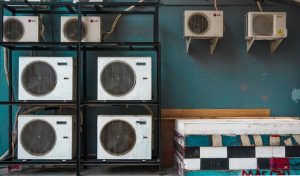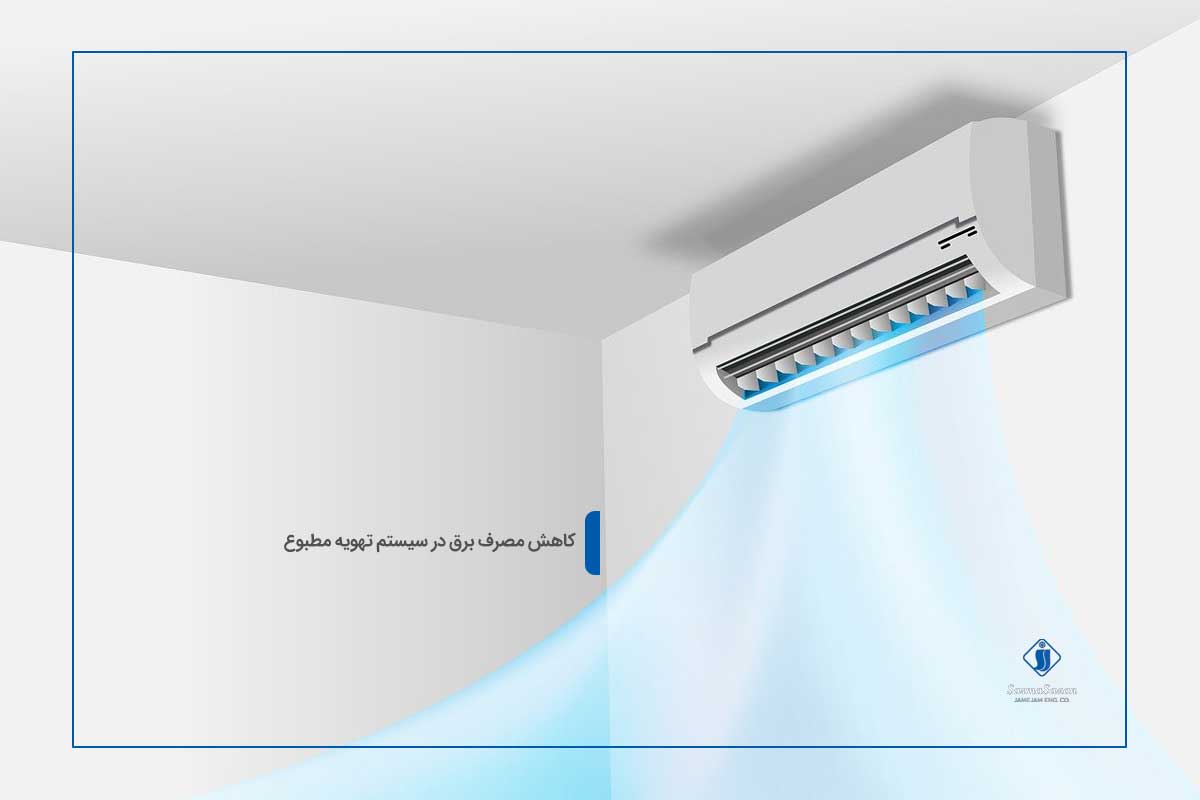What device to choose?
One of the most logical ways to control and reduce power consumption is to choose an air conditioning system that meets our needs. A facility or building with limited space and light work requires a low-capacity air conditioner and vice versa. So what device to choose depends very much on our needs. Of course, the existing conditions, budget and products available in the market also play a role, but compliance with the need leads to coordination of performance with the device.
For example, if we want to look specifically at chillers, we need to know that there are two general types of chillers: absorption chillers and compression chillers. Compression chiller is one of the most common types of chillers and works with electricity. In contrast, the absorption chiller accepts gas as its fuel instead of electricity. This makes the absorption chiller suitable for areas with power shortages.
What is the solution to reduce the power consumption of air conditioners?
Reducing energy consumption is tantamount to optimizing energy consumption and increasing productivity. So when we talk about increasing efficiency, we mean optimizing power consumption and vice versa, reducing efficiency means increasing power consumption.

Reducing the cooling rate reduces the power consumption of the air conditioner
The first step in optimizing energy consumption in air conditioning systems is to reduce the amount of cooling. Because the amount of electricity consumed by air conditioning systems also depends on the amount of cooling or the amount of heat that the system must dissipate. The steps to reduce the amount of cooling are as follows:
Space insulation: This includes roof insulation, window glazing, seam filling and canopy. It makes sense that the more air flows between the inside and outside of the building, the more the air conditioning effort goes into question and the more it has to work. This increases the cooling rate of the device and increases power consumption.
Minimize heating and light fixtures: Lights generate heat on their own. Lamps and appliances that are exothermic should be turned off for as long as they are not needed. Because the production of heat, it increases the heat that must be dissipated and makes the work of air conditioning heavier. Also, replacing standard motors with more efficient motors reduces the heat emitted by the devices.
Ensuring that the operation of the device is under control and that it meets the requirements in terms of time: Air conditioning systems operate during different times and hours of the day and in different parts of a building. In this way, setting a specific time for their activity gives us more control over them, and as a result, the devices will stay on during key and required hours.
Use of variable speed motors in air conditioning systems: This feature allows fans and pumps to operate at different levels instead of just off or on.
Adjusting the right temperature: The purpose of designing and producing air conditioning systems is the comfort and convenience of people, but in the meantime, it should not be forgotten that the appropriate and desired temperature for each person should be a reasonable temperature that the device can handle in different seasons. A few degrees of slight temperature difference can have a significant effect on air conditioning power consumption.
Use the right raw materials
For example, the water used in chillers, if it is water that has severe impurities with it and leaves a lot of sediment, will increase the depreciation of the system and reduce its efficiency.
Use of precision and digital control systems
Naturally, the systems that allow us to monitor are more under our control. It should be noted that there are many systems that are incorrectly configured because they are not constantly checked in the short term. A system that allows us to control and monitor its performance, with the changes that are applied to it, keeps its energy consumption lower than systems out of control.
Also, intelligent and automated systems can be used. With this system, power consumption will be drastically reduced. Because the system will be continuously adjusted to the needs of the occupants of the building.
What is the role of maintenance in energy optimization?
Maintaining air conditioning equipment is not just about providing space for it. Since air conditioning is based on heat transfer and heat exchange, dirty ducts and surfaces reduce the system’s outstanding efficiency and increase power consumption. Sediments occur on the plates of machine components, even if the cycle is closed. This is an inevitable coincidence. But to fix it, filters, surfaces and heat exchange channels must be kept clean. Sometimes it is even necessary to constantly change the air filters.
In many cases, these contaminants block the airflow path and reduce the efficiency of the device. This includes exit valves.
Take notes and record daily performance
By recording and recording the daily performance of the air conditioners, the strengths and weaknesses of its performance and the discrepancies of the device with the statements and statements of the factory are identified. In this way, we can plan to work with the system and know at what level of expectation we should work from the air conditioner.
Also, the diary of the specifications helps to show the status and deviations of the device. This makes it possible to prevent acute problems. In this way, by analyzing the data related to the device, the problem will be predicted and we will deal with it with more readiness. For example, we will find that we have to clean or replace a part because it reduces the efficiency of the device and increases power consumption.

Leakage control
Leakage reduces the efficiency of the air conditioner. Some leaks, such as fan coil leaks, are normal and are directed where they should be by the drain tray and pipe. But other leaks that reduce efficiency must always be monitored.
Control the number of refrigerants, oils and water
Refrigerants and oils play a key role in many air conditioners. Controlling their amount and timely replacement can prevent the efficiency of the device from declining. In addition, in chillers, it is possible to dissolve oil in the refrigerant. For every one percent of oil dissolved in the refrigerant, a 2 percent drop in efficiency occurs. In this way, by changing the chiller oil in a timely manner, a 2% drop in efficiency will be prevented.
Awareness is the main helper
Finally, it can be noted that training and raising awareness of the air conditioning system and operating according to the factory instructions are factors that control the decrease in efficiency and reduce the power consumption of air conditioning. Familiarity with how systems work, training staff, and appointing responsible and knowledgeable people to control the device will definitely save a lot of money.

 English
English  فارسی
فارسی 



